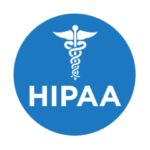More info
Services
Contact Us
Strong Cyber Solutions, LLC
- 4441 George Mason Blvd Fairfax, VA 22030
- +1 800-641-4096
- info@strongcybersolutions.com
Copyright © 2022 StrongCyberSolutions – All Rights Reserved. Privacy Policy | Cookie Policy


HIPAA, or the Health Insurance Portability and Accountability Act, is a U.S. legislation enacted in 1996. It safeguards individuals’ health information privacy and security. HIPAA establishes standards for electronic health transactions and sets guidelines for protected health information (PHI) disclosure. Covered entities, like healthcare providers and insurers, must adhere to these rules. The law ensures patients’ rights regarding their health data, encourages secure electronic exchanges, and imposes penalties for non-compliance, aiming to maintain confidentiality and integrity in the healthcare system.
The Security Rule
The Security Rule complements the Privacy Rule by establishing national standards for the security of electronic protected health information (ePHI). It sets forth requirements for covered entities to implement measures to protect the confidentiality, integrity, and availability of electronic health information.
Key Provisions of the Security Rule:
Administrative Safeguards: Covered entities must implement policies and procedures to manage the selection, development, implementation, and maintenance of security measures to protect ePHI.
Physical Safeguards: Entities must implement physical measures to protect electronic systems, equipment, and data from unauthorized access.
Technical Safeguards: Technical measures must be employed to protect ePHI and control access to it.
Organizational Requirements: Covered entities must address requirements related to contracts, policies, and procedures to comply with the Security Rule.
Breach Notification Rule: In the event of a breach of unsecured ePHI, covered entities must notify affected individuals, the Department of Health and Human Services (HHS), and, in certain cases, the media.
HIPAA’s Impact and Implementation
Covered Entities and Business Associates
HIPAA’s regulations apply to covered entities, including healthcare providers, health plans, and healthcare clearinghouses that transmit health information electronically. Additionally, business associates – entities that perform services involving the use or disclosure of PHI on behalf of covered entities – are also subject to certain HIPAA requirements.
Challenges and Compliance
HIPAA compliance poses challenges for covered entities and business associates, requiring ongoing efforts to ensure the protection of health information. This includes implementing and maintaining robust security measures, conducting regular risk assessments, providing employee training, and addressing the evolving landscape of healthcare technology.
Copyright © 2022 StrongCyberSolutions – All Rights Reserved. Privacy Policy | Cookie Policy